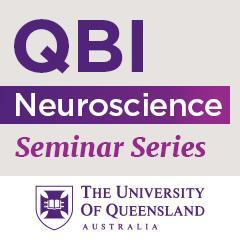Two MND-focussed talks on Monday 23rd of June 2025

Dr John Lee
FightMND Bill Guest Mid-Career Research Fellow
Group Leader (Neuroimmunomics Laboratory)
School of Biomedical Sciences (SBMS)
Title: Targeting Neuroimmune Interfaces in MND
Abstract: Motor Neurone Disease (MND) is a devastating neurodegenerative disorder characterised by progressive motor neuron loss and limited treatment options. Growing evidence implicates chronic neuroinflammation and dysregulated innate immune signalling as central drivers of disease progression. My research program focuses on identifying and validating novel therapeutic targets that modulate these neuroinflammatory pathways, with the ultimate goal of translating our findings into effective treatments for advancement into human clinical trials. In this seminar, I will highlight key immune modulators currently under investigation in my laboratory, including the complement receptors C5aR1 and C3aR, the chemokine receptor CXCR2, and the inflammasome adaptor ASC. I will also introduce our emerging work on microglial immunometabolism, exploring how metabolic reprogramming influences microglial function and disease trajectory. By integrating molecular, cellular, and translational approaches, our research aims to uncover critical mechanisms driving neurodegeneration and accelerate the development of actionable therapeutic strategies for MND.
Dr Andrew Tosolini
Research Fellow, Ngo & Steyn Groups
Australian Institute for Bioengineering and Nanotechnology (AIBN)
School of Biomedical Sciences (SBMS)
Title: From Axonal Transport Deficits to Therapeutic Targets: Investigating Motor Unit Vulnerability in MND
Abstract: Motor neuron disease (MND) is characterised by the progressive degeneration of specific motor units, yet the molecular and physiological basis for their selective vulnerability remains poorly understood. My research aims to uncover these mechanisms by using axonal transport as a dynamic and functional readout of neuronal health. In this presentation, I will highlight how intravital imaging of peripheral nerves has revealed selective impairments in the in vivo axonal transport of signalling endosomes and mitochondria in vulnerable motor neurons, and across multiple MND mouse models, including SOD1G93A, TDP43M337V and FUSΔ14 models. I will also present evidence that distinct neurotrophic factors differentially regulate endosomal transport in vivo, and how disruptions in BDNF-signalling contributes to motor neuron vulnerability. These findings point to a potential therapeutic avenue that may be addressed through AAV-mediated gene therapy aimed at restoring neurotrophic support. Additionally, I will discuss new insights into axonal transport dynamics at the nodes of Ranvier, which appear to also be altered in mouse models of MND. Finally, I will outline an integrated research program investigating how bioenergetics, protein translation, organelle interactions, and spatial transcriptomics intersect to uncover key mechanisms of motor unit vulnerability, and how these insights can inform the development of gene therapy-based interventions to preserve motor neuron function in MND.
About Neuroscience Seminars
Neuroscience seminars at the QBI play a major role in the advancement of neuroscience in the Asia-Pacific region. The primary goal of these seminars is to promote excellence in neuroscience through the exchange of ideas, establishing new collaborations and augmenting partnerships already in place.
Seminars in the QBI Auditorium on Level 7 are held on Wednesdays at 12-1pm, which are sometimes simulcast on Zoom (with approval from the speaker). We also occassionally hold seminars from international speakers via Zoom. The days and times of these seminars will vary depending on the time zone of the speaker. Please see each seminar listed below for details.



